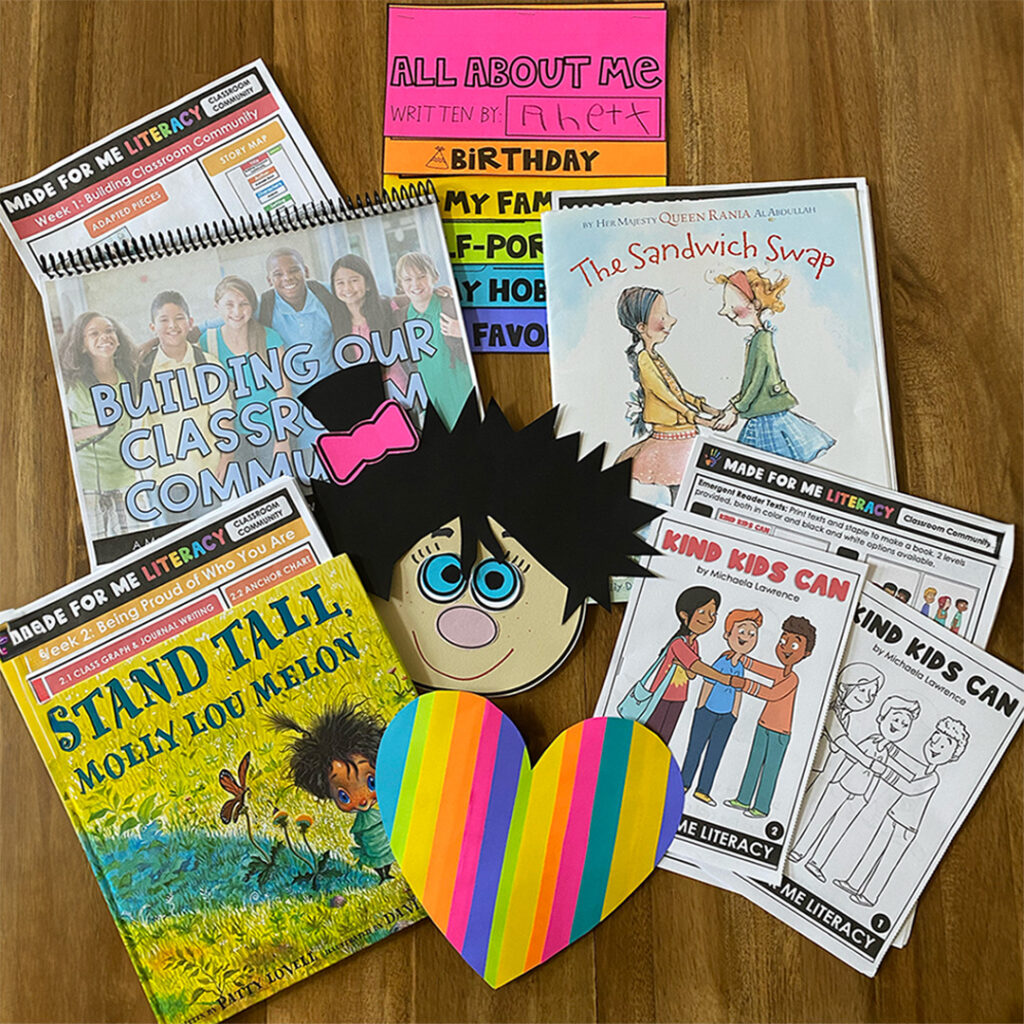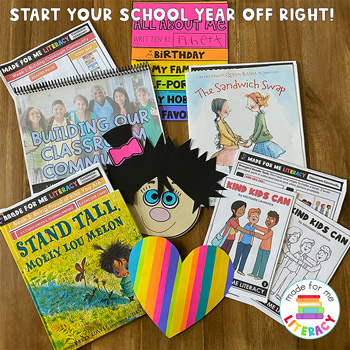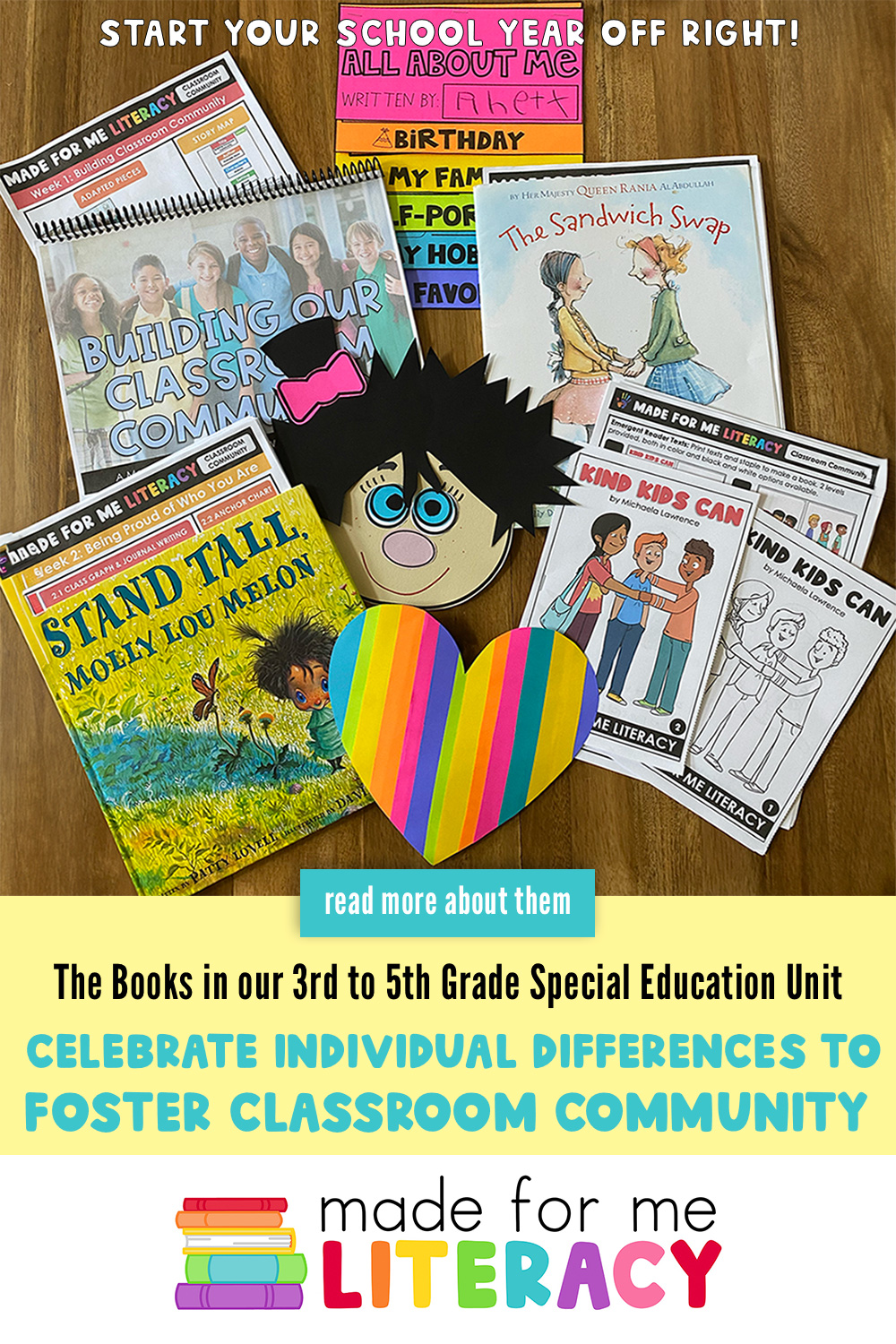
Each of the following books was carefully chosen or written to align with the weekly themes of the “Classroom Community” unit. They serve as springboards for discussions, activities, and reflections that help students develop essential social-emotional skills.
By engaging with these texts, students learn about building a supportive community, embracing their unique qualities, appreciating diversity, and practicing kindness—foundational principles that contribute to a positive and inclusive classroom environment.
Week 1: “Building Classroom Community” by Made For Me Literacy
“Building Classroom Community” by Made For Me Literacy serves as the foundational text for the first week, introducing the concept of a classroom community. This book is designed to engage young readers with accessible language and relatable scenarios.
The story emphasizes the importance of respect, cooperation, and understanding among classmates. Through various characters and situations, the book demonstrates how each student contributes to a positive and supportive learning environment.
The activities associated with this text, such as matching adapted pieces to book pages and completing story maps, help students internalize the lessons and apply them to their own classroom interactions.
Week 2: “Stand Tall, Molly Lou Melon” by Patty Lovell
In the second week, the unit uses “Stand Tall, Molly Lou Melon” by Patty Lovell to promote self-esteem and individuality. Molly Lou Melon is a small girl with unique traits, including a voice that sounds like a bullfrog being squeezed by a boa constrictor and a quirky smile.
Despite being teased, she learns to stand tall and embrace her unique qualities, thanks to the advice and support of her grandmother. This story is a powerful tool for teaching students about self-confidence and resilience.
The associated reading activities, such as a picture walk and comprehension questions, encourage students to engage deeply with Molly Lou Melon’s story and draw parallels to their own lives.
By analyzing Molly’s character traits and reflecting on their own, students develop a stronger sense of self and appreciation for their unique attributes.
Week 3: “The Sandwich Swap” by Her Majesty Queen Rania Al Abdullah
The third week’s text, “The Sandwich Swap” by Her Majesty Queen Rania Al Abdullah, focuses on diversity and acceptance.
The story revolves around two best friends, Lily and Salma, who love each other dearly but have different tastes in sandwiches—Lily likes peanut butter and jelly, while Salma prefers hummus. Their differences lead to a disagreement, but through an exchange of their sandwiches, they learn to appreciate and celebrate their diverse tastes and cultural backgrounds.
This story is an excellent vehicle for discussing the value of understanding and embracing differences. The reading activities, such as matching adapted pieces to book pages and completing story maps, help students engage with the narrative and its themes.
By comparing and contrasting the characters and their experiences, students learn important lessons about empathy, respect, and the richness that diversity brings to their lives.
Week 4: “Kind Kids Can” by Made For Me Literacy
In the final week, the text “Kind Kids Can” by Made For Me Literacy underscores the importance of kindness and empathy.
This book features various scenarios where children demonstrate acts of kindness, both big and small. It illustrates how simple gestures can have a significant impact on others and foster a positive classroom environment.
The reading activities for this week, including picture walks and assessments, encourage students to reflect on the acts of kindness depicted in the book and consider how they can incorporate similar behaviors into their daily interactions.
The text serves as a practical guide for students to understand and practice kindness, helping to solidify the classroom community principles established in the earlier weeks.


Leave a Reply